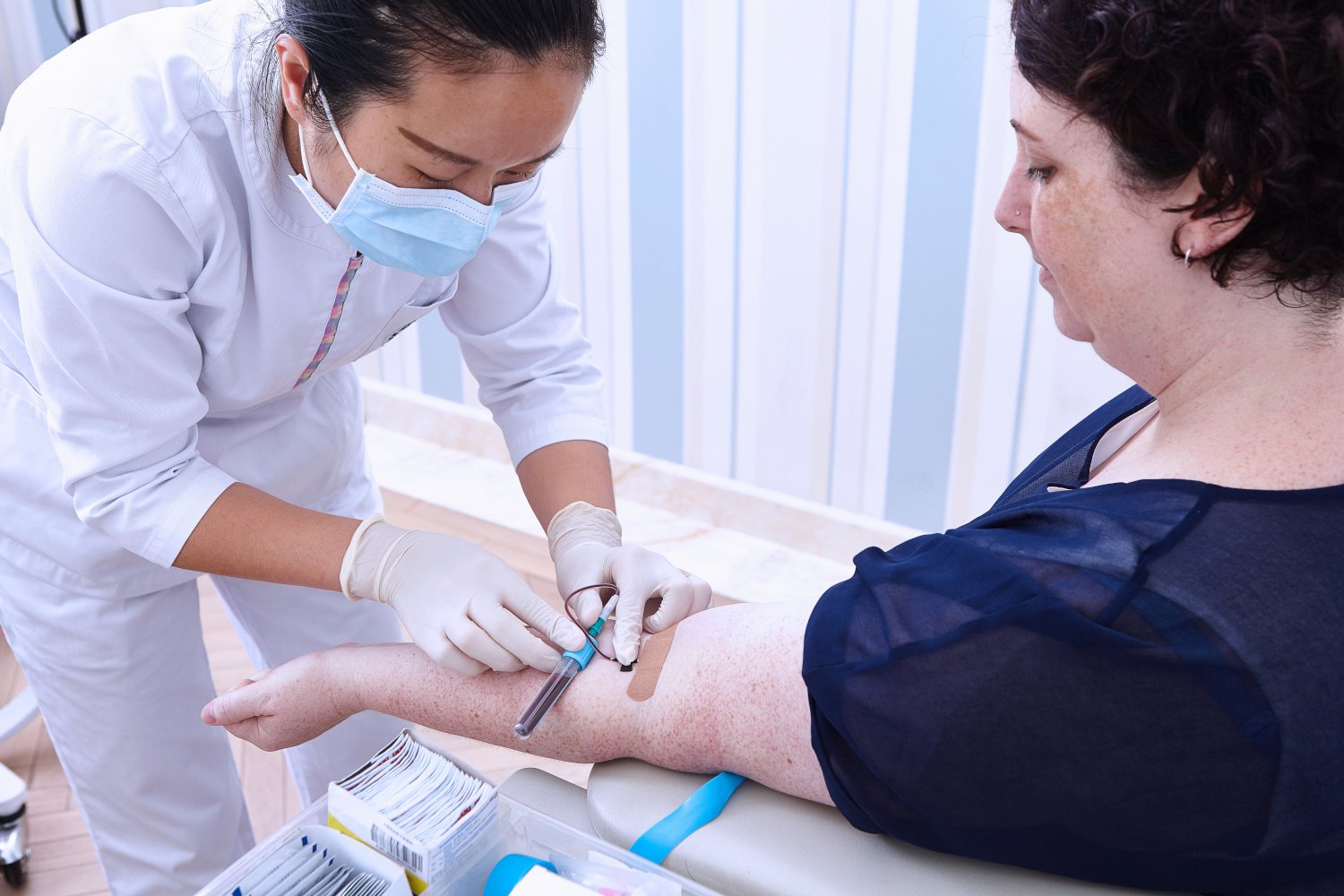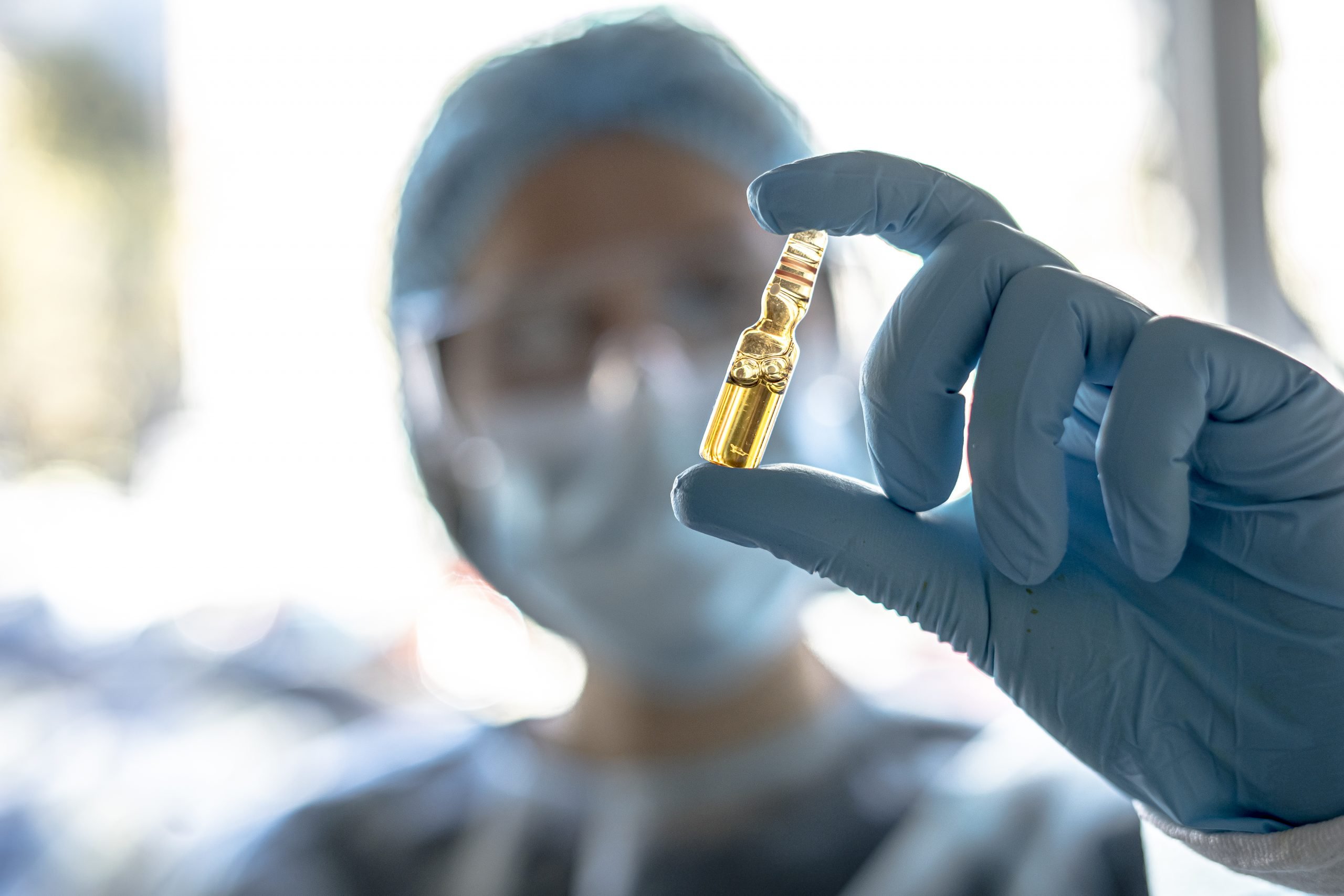Bipolar disorder is a mental health condition characterized by extreme mood swings that include emotional highs (mania or hypomania) and lows (depression). These mood swings can affect sleep, energy levels, behavior, judgment, and the ability to think clearly. Episodes of mood swings may occur rarely or multiple times a year. While most individuals will experience some emotional symptoms between episodes, some may not experience any.
How Ketamine Treats Bipolar Disorder
Mechanism of Action
Ketamine primarily influences the brain’s glutamate system, different from traditional medications that target the serotonin or dopamine systems. Glutamate is the most abundant excitatory neurotransmitter in the nervous system and plays a pivotal role in neural activation. Ketamine therapy and bipolar disorder treatment intersect here; ketamine acts as an NMDA receptor antagonist, which modulates glutamate release and results in rapid changes in neural connectivity and function. This action can help to reset dysfunctional neural pathways that are often seen in mood disorders.
Mood Regulation and Cognitive Function
Ketamine infusion for bipolar depression affects mood regulation and cognitive functions by enhancing neuroplasticity—the brain’s ability to adapt and reorganize itself. By stimulating the growth of new synapses and enhancing the brain’s response to stress and environmental factors, ketamine helps improve resilience and mood stability. With bipolar disorder, when mood management and cognitive abilities are frequently severely compromised, this improvement is essential to treatment.
Rapid Relief from Symptoms
One of the most remarkable benefits of ketamine in treating mental health disorders is its ability to provide rapid relief from depressive symptoms. Traditional antidepressants can take weeks to start working, but patients can feel the effects of infusion therapy for bipolar within hours. Such a rapid response can be lifesaving for patients experiencing intense suicidal ideation or severe depression.
Comparison with Traditional Treatments
When comparing ketamine therapy for bipolar with traditional treatments, several differences stand out. Traditional mood stabilizers and antidepressants often require prolonged periods to determine efficacy and optimal dosing. In contrast, ketamine’s effect on bipolar disorder can be observed almost immediately, which is crucial during acute episodes. Furthermore, ketamine has shown efficacy in treatment-resistant cases where other medications have failed, offering a valuable alternative for managing the condition.
The Process of Ketamine Therapy for Bipolar Disorder
Administration
The administration of ketamine infusion for bipolar involves a carefully controlled clinical setting. Patients receive low doses of ketamine via an intravenous (IV) line, which allows the medication to bypass the digestive system and provide immediate effects. This method of delivery ensures precise control over the dosage and timing of the treatment, tailored to each individual’s needs. The entire process is monitored by medical professionals to ensure safety and effectiveness.
Duration and Frequency
The typical duration and frequency of ketamine treatment for bipolar vary based on individual response and the severity of symptoms. Generally, a series of infusions are administered over two to three weeks. Each session lasts approximately 40 minutes to an hour. Patients might start with more frequent sessions and taper down as symptoms improve. This schedule can be adjusted to optimize outcomes and manage any emerging side effects.
What to Expect During Infusion Sessions
During bipolar disorder treatment with ketamine, patients might experience a range of sensations. The experience can differ widely, but common responses include feelings of relaxation or dissociation from one’s usual mental state. Here is what typically happens during a session:
- Preparation: The session begins by ensuring the patient’s comfort in a tranquil setting, which is crucial for the therapy’s success. The room is typically quiet, with dim lighting to foster a calming atmosphere. Patients are usually offered headphones with soothing music to help them relax further. This initial step is key to setting a positive tone for the session, allowing patients to feel secure and supported as they prepare for the infusion.
- Monitoring: Once the patient is comfortable, the session progresses to continuous monitoring of vital signs. This includes checking blood pressure, heart rate, and oxygen saturation levels. Such monitoring is essential to ensure the patient’s safety throughout the session. It also helps healthcare providers detect any adverse reactions early, allowing for immediate intervention if necessary. Assuring that the ketamine is delivered safely and effectively, this close observation is a fundamental component of the treatment.
- Infusion: The ketamine is administered intravenously over approximately 40 minutes to one hour. During this phase, the patient may begin to experience effects within a few minutes, ranging from relaxation to a mild dissociation from their usual mental state. The slow administration is designed to optimize the therapeutic effects while minimizing side effects, making the experience as comfortable as possible for the patient.
- Observation: Following the infusion, patients are not immediately discharged. Instead, they remain under close observation for about 30 minutes. This post-infusion period is crucial to ensure that the patient is stable and comfortable before leaving the facility. It helps in assessing the immediate effects of the ketamine and provides an additional safety measure to address any potential delayed reactions.
Sessions are structured to maximize patient safety and therapeutic effectiveness. From preparation through observation, each step is crafted to support the patient’s journey toward potential symptom relief, making the entire process a cornerstone of innovative psychiatric treatment.
Post-Treatment Care and Monitoring
Patients must be monitored closely by their healthcare provider. Follow-up appointments focus on assessing the patient’s response to the treatment, adjusting dosages if necessary, and discussing any side effects. Continuous care ensures that the benefits of the therapy are maximized while minimizing any risks. Additionally, healthcare providers often recommend integrating other supportive therapies such as psychotherapy or counseling to enhance the overall treatment effect.
Benefits of Ketamine Treatment for Bipolar Disorder
Reduction in Suicidal Ideation
A critical benefit is its potential to rapidly reduce suicidal thoughts. For individuals battling severe depression and suicidal ideation, ketamine can be a lifeline, offering relief when traditional medications have not been effective. A rapid decrease in suicidal thoughts can be instrumental in stabilizing patients in crisis, allowing for more comprehensive and long-term treatment planning.
Improved Mood Stability
As emphasized before, patients receiving ketamine for bipolar depression often experience more stable moods over time. This stability is due to ketamine’s ability to enhance synaptic connectivity and promote greater resilience against stress and depressive triggers. Improved mood stability helps reduce the frequency and severity of bipolar episodes, thus enhancing overall quality of life and functionality.
Potential Side Effects and Management
While ketamine therapy has many benefits, it is also associated with certain side effects such as dissociation, nausea, and increased blood pressure. These are generally transient and can be managed effectively under the supervision of a healthcare provider. Clinics offering ketamine therapy are equipped to handle these side effects, ensuring patient comfort and safety during each session.
Finding Reputable Ketamine Therapy Clinics
Identifying Certified Practitioners and Clinics
It’s essential to identify clinics and practitioners that are certified and specialize in this treatment. Certification ensures that the clinic adheres to established safety and health standards, which is crucial when dealing with a powerful treatment like ketamine. Patients should verify the credentials and training of the healthcare providers, as well as the accreditation status of the clinic, to ensure they receive the highest standard of care.
Understanding Treatment Costs
The costs associated with ketamine for manic depression can vary widely depending on the clinic and the required number of infusion sessions. Patients need to get a clear understanding of all potential costs upfront, including the fees for the initial consultation, each session, and any follow-up care. Some clinics may offer payment plans or financial assistance to help make the treatment more accessible.
Navigating Insurance Coverage
Ketamine infusion for bipolar disorder is not always covered by health insurance plans, as it can still be considered an experimental treatment for bipolar disorder. Patients should directly contact their insurance providers to understand what coverage, if any, can be expected, and discuss with the clinic any potential out-of-pocket costs.
Tips for Choosing the Right Clinic
A well-chosen clinic not only enhances the effectiveness of the treatment but also provides a comfortable and supportive environment for patients. Here are some tips to help make an informed decision:
- Research the Clinic’s Reputation: Start by looking for reviews and testimonials from previous patients to measure their experiences. This insight is invaluable as it reflects the real impact of the clinic’s care on patient outcomes. Scrutinize both positive and negative feedback to get a balanced view. Consider factors like the clinic’s success rates, any reported complications, and general patient satisfaction. This can help anticipate the quality of care you might receive.
- Evaluate the Expertise of the Staff: Ensure that the clinic staff, especially the practitioners, have adequate experience and training in administering ketamine. Look into their qualifications, including where they received their training and any additional certifications they hold. It’s also beneficial to learn about their approach to treatment — whether they adopt a more personalized or standardized method. Experienced practitioners will be more adept at adjusting treatments in response to patient needs and managing any unforeseen complications.
- Assess the Support Services Offered: Check if the clinic provides comprehensive support, including pre-treatment assessment, post-infusion monitoring, and counseling services. A holistic approach to treatment, which includes these support services, can significantly enhance the effectiveness of the therapy. Pre-treatment assessments help in customizing the therapy to individual needs, while post-infusion monitoring is crucial for ensuring safety and optimizing outcomes. Counseling services can also play a critical role in addressing the psychological aspects of the conditions being treated.
- Consider the Clinic’s Location and Accessibility: Ensure the clinic is conveniently located and accessible, making the treatment sessions less stressful to attend. Consider factors like proximity to your home, availability of public transportation, and parking facilities. A clinic that is easy to reach can reduce travel-related stress and make it easier to adhere to treatment schedules, especially if multiple sessions are required.
Selecting the right clinic is a foundational step in your treatment journey. By carefully considering each of these aspects, you can feel more confident in your choice and focus on your health and recovery.
Integrating Ketamine Therapy with Other Treatments
Combining with Mood Stabilizers
Mood stabilizers aid in preserving long-term stability, whilst ketamine offers quick symptom alleviation. This combination allows for a multifaceted approach to treating bipolar disorder, addressing both immediate and sustained needs. Healthcare providers carefully coordinate these treatments to maximize benefits while minimizing potential interactions and side effects.
Role of Psychotherapy
Psychotherapy plays a crucial role in the comprehensive treatment of bipolar disorder, especially when combined with management strategies. Techniques such as cognitive-behavioral therapy (CBT) and dialectical behavior therapy (DBT) are used to help patients develop coping strategies, improve mood management skills, and address underlying issues contributing to their condition. Psychotherapy can significantly enhance the effectiveness of ketamine by helping patients process and integrate their experiences during and after treatment.
Lifestyle Modifications
Establishing a regular sleep schedule is fundamental, as sleep is integral to mental health. Disruptions in sleep patterns can affect mood, cognitive functions, and overall brain health, potentially diminishing the therapeutic effects of ketamine. A consistent sleep schedule helps regulate the body’s natural circadian rhythms, promoting better sleep quality and mood stabilization. Patients undergoing ketamine therapy are encouraged to aim for seven to nine hours of sleep per night, maintain consistent sleeping and waking times, and create a restful sleeping environment free from distractions like electronic devices.
Regular physical activity is another pillar supporting the success of ketamine treatment. Exercise releases endorphins, chemicals in the brain that act as natural mood lifters. It also helps in reducing levels of the body’s stress hormones, such as adrenaline and cortisol. Regular physical activity, particularly aerobic exercises like walking, cycling, or swimming, can significantly boost overall brain health, aid in stress management, and enhance the neuroplastic effects of ketamine treatment. Diet also plays a significant role in mental health and the efficacy of treatments like ketamine. Eating a balanced diet rich in fruits, vegetables, whole grains, and lean proteins can provide the body with essential nutrients necessary for brain health and overall well-being. Omega-3 fatty acids, found in fish like salmon and flaxseeds, are particularly important, as they contribute to the structural integrity of brain cells.
Ongoing Research and Broader Applications
Versatility and Broad Therapeutic Potential
Ketamine’s versatility is highlighted by its broad therapeutic potential across various psychiatric and neurological conditions. Beyond mood disorders, it is being studied for its effects on chronic pain, PTSD, and obsessive-compulsive disorder. This wide range of applications suggests that ketamine could revolutionize the field of neuropsychiatry by providing rapid and effective solutions for complex, hard-to-treat conditions.
Emerging Trends and Innovations
As ketamine gains more acceptance in the medical community, new delivery methods and formulations are being developed. These include nasal sprays, sublingual tablets, and longer-lasting derivatives of ketamine. Each innovation aims to improve patient accessibility and compliance while maintaining the efficacy and rapid onset of action characteristic of ketamine therapy. Such developments could greatly expand the use of ketamine, offering more patients access to this potentially life-changing treatment.
As with any medical treatment, informed decision-making is crucial when considering bipolar ketamine treatment. Patients and caregivers are encouraged to engage with healthcare providers to fully understand the benefits and risks associated with ketamine therapy. This dialogue is essential to determine if ketamine is an appropriate option based on individual health needs and treatment history.


























